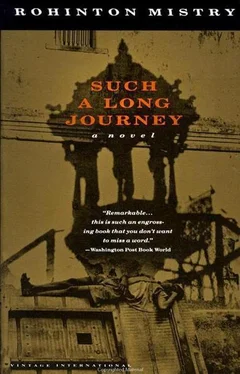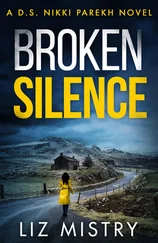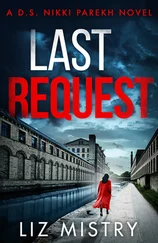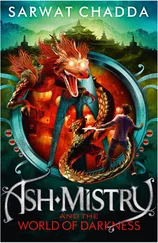‘Excuse me?’ said the stall owner. ‘You want to buy the Meccano?’ He touched Gustad’s shoulder.
‘Oh,’ said Gustad. ‘No, no. Just looking.’ He handed back the set, ran a hand through his hair and surveyed the series of lanes running perpendicular to the main road, all littered with a miscellany of goods, as though a convoy of lorries had symmetrically spilled their loads. Much of it was metal and glass, gleaming in the hot afternoon sun. Worthless junk lay side by side with valuable objects: chipped cups and saucers, Meissen ware, Sheffield cutlery, vases, brass lamps, Limoges porcelain, solder-repaired cooking utensils, ewers, wind-up gramophones with shining conical horns, silver trays, walking-sticks, weights and measures, cricket balls in varying stages of wear, refurbished cricket bats, umbrellas, crystal wineglasses.
He picked a lane at random and entered. An earwax remover was busy at the corner, his customer wincing occasionally as the slender silver instrument entered, explored, and emerged. Gustad stepped carefully around them. What would happen, he wondered, if someone jostled the man’s arm while he was excavating? The thought made him shudder.
And what had become of the Meccano set? Lost with everything else, no doubt, during the bankruptcy. The word had the sound of a deadly virus, the way it had ravaged the family. All because of one proud man’s stubbornness. Pappa putting off his operation for months, finally having to be rushed to hospital. And before going under the anaesthetic, handing charge of the business to his younger brother, against everyone’s advice. For Pappa hated being given advice.
The brother had a formidable reputation for drink, and for frequenting the racecourse. The speed with which he mortgaged the assets and fuelled his vices was astonishing. Gustad’s father emerged from hospital to the shambles of what had once been the finest bookstore in the country, and the family never recovered. The strain of it all sent his mother to hospital. And then, there was no money to pay for a private room and nurse, nor for Gustad’s second-year college fees. His father called him to explain and fell to pieces. He wept and begged forgiveness for failing him. Gustad did not know what to say. Seeing his once invincible father behave in this broken manner did something strange to him. He began to utter scornful things, while silently swearing to himself, then and there, that he would never indulge in tears — not before anyone, nor in private, no matter what suffering or sorrow fell upon his shoulders; tears were useless, the weakness of women, and of men who allowed themselves to be broken.
It was a tough vow to make at seventeen, but he had kept it. True to his word, he did not cry for his mother when she lay in the general ward, uncomplaining and uncomprehending, nor when she died after her brief sojourn there. His father had gone so far as to ask him, ‘Not one tear for Mamma?’ and Gustad had stared back in stony silence, although his eyes were on fire. The final ignominy for his father was that he could not afford even the four days of prayer at the Tower of Silence.
One thing that gave Gustad some satisfaction during this time was the death of his dissolute uncle, whose liquor-marinated liver, scarred and cirrhotic, finally succumbed. But Gustad’s father had insisted on looking after the worthless brother as best as his impoverished state permitted, which again raised Gustad’s scorn.
He came to the corner of the lane without passing any bookstalls. How little it took, he thought, to wake up so many sleeping memories. ‘ Chumpee-maalis! Tayel-maalis !’ called a voice at his elbow. The man fell in step beside him, swinging his little rack of oils and unguents, a towel slung over his shoulder: ‘Head maalis ? Foot maalis ?’ Gustad shook his head and quickened his pace to discourage the roving masseur.
Working his way through the crowds, he came at last upon two bookstalls spread out on the pavement. Next to them, a barber clipped away vigorously, oily black locks descending hard and fast on to the white sheet. Gustad stopped, but the titles were in Hindi, Gujarati, or scripts he was unable to identify. ‘No Angrezi books?’ he asked a man who sat on a trunk.
‘Oh yes, Angrezi books.’ He rose and opened the lid of the trunk. Inside were issues of Life dating back to the early sixties, tattered Superman comics, Reader’s Digests, and Filmfare.
Gustad looked at his watch: past three. Had to hurry. Between two and four, Jimmy had written. The next lane had several stretches of book-strewn asphalt. Mainly paperbacks: westerns and romances. The remaining stalls were selling motorcar parts, glass jars, and wooden stools, so he turned the corner into the next lane and came upon a collection more respectable than any he had seen so far. A richly bound Great Dialogues of Plato, volume seven of the Encyclopedia of Religion and Ethics, edited by James Hastings, and Henry Gray’s Anatomy of the Human Body caught his eye. He picked up each in turn and leafed through it.
‘Very good books,’ said the owner. ‘Very difficult to find. Only in Chor Bazaar you can find.’
Gustad bestowed a studied disregard upon him, remembering his father’s bargaining style. He badly wanted the three books. What a wonderful way to augment my small collection. How fine they will look in the bookcase that Sohrab and I…that I will build. ‘How much?’ He waved vaguely at the books.
‘Different-different prices,’ said the man.
Smart fellow. Going to be difficult. Gustad pointed at random to various titles to confuse him. When the performance was over, his three selections came to nine rupees. He tossed them back disinterestedly and turned to leave: ‘Too much.’
‘Why walk away? You say how much.’
‘Four rupees.’
The man stooped to pick up the books, and Gustad thought he had won. ‘Listen, seth, listen to me. Make a boni with me. Seven rupees.’
‘Four rupees.’
The man pointed to the sky. ‘By the light of the sun, in the shadow of the mosque, I tell you honestly my last price. Less than that I cannot go, or what will I feed my children?’ He paused. ‘Six rupees.’
Gustad paid. ‘Are there others selling English books?’
‘Oh yes. One new fellow came recently. Good stock. At the end of this same lane, keep walking straight.’
Gustad’s arm encircled the three books. The mass of the weighty volumes began to tell reassuringly, and he felt less guilty about spending the money. What was six rupees for three classics. Must visit Chor Bazaar regularly from now on. One or two books at a time, and eventually I will have enough to fill that bookcase. It’s all a family really needs. A small bookcaseful of the right books, and you are set for life.
At the corner, he saw a tea stall. Next to it was the bookstand. Scores of volumes were in wooden crates, with the spines facing up, and more were displayed on a plastic sheet upon the pavement. He went closer. At the rear, leaning against a packing crate, bound in red cloth with gold lettering, stood The Complete Works of William Shakespeare.
He looked around nervously and peered inside the empty tea stall. This corner of the lane was strangely quiet, compared to the chaos and hubbub he had wandered in for over an hour. A boy stood by the bookstand. Gustad bent to get the volume, but the others under his arm made it difficult. ‘Which one?’ the boy asked. He followed Gustad’s finger, skipped nimbly over the front rows and retrieved it.
Gustad knew he was at the right place. He opened the volume to Othello, nevertheless, and turned to the end of act I. Yes, there they were, underlined in red, all five repetitions: ‘Put money in thy purse.’ Thorough as usual, was Jimmy.
Читать дальше












